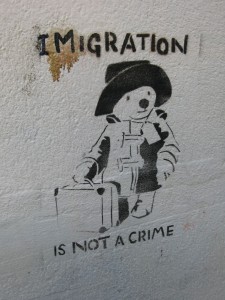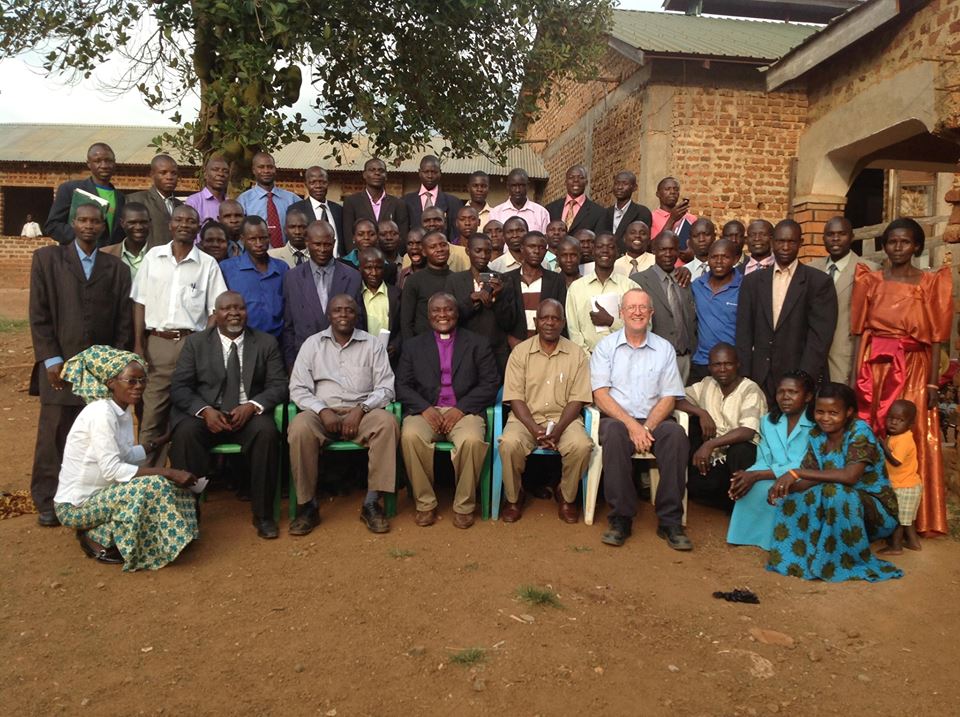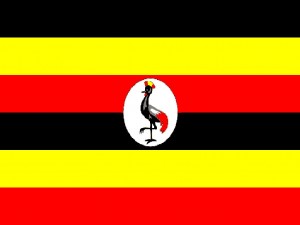 Images of investors in the United States have not always been positive. Our history contains robber barons to modern patent trolls. Investment is thought of as a selfish act, speculation in order to make a profit like a Ferengi following the Rules of Acquisition. Jesus worked counter-culturally in his investment. Continue reading The Investment of Jesus
Images of investors in the United States have not always been positive. Our history contains robber barons to modern patent trolls. Investment is thought of as a selfish act, speculation in order to make a profit like a Ferengi following the Rules of Acquisition. Jesus worked counter-culturally in his investment. Continue reading The Investment of Jesus
My Black Seder
 A traditional New Year meal for African-Americans includes greens and black-eyed peas. It’s a “good luck” meal of soul food. I’m not superstitious, but I recall having this meal “all the time” growing up, not realizing until I was in college that we actually only ate black-eyed peas once a year. We had no ceremony around it, perhaps other than my dad jokingly shouting into the kitchen, “Where’s my black-eyed peas?” It was just something that happened. Continue reading My Black Seder
A traditional New Year meal for African-Americans includes greens and black-eyed peas. It’s a “good luck” meal of soul food. I’m not superstitious, but I recall having this meal “all the time” growing up, not realizing until I was in college that we actually only ate black-eyed peas once a year. We had no ceremony around it, perhaps other than my dad jokingly shouting into the kitchen, “Where’s my black-eyed peas?” It was just something that happened. Continue reading My Black Seder
The Immigration of God
 I found it difficult to find a fitting graphic for this post, as the faces of immigration have constantly changed over time and place. Immigration may be forced or voluntary, driven by need or opportunity, labeled legal or illegal. Immigration is full of positive and negative connotations and politics beyond the simple definition of the word. Yet regardless of one’s views on immigration, one individual’s move changed the world more than any whole people group’s migration affected the world, a country, or geography. Continue reading The Immigration of God
I found it difficult to find a fitting graphic for this post, as the faces of immigration have constantly changed over time and place. Immigration may be forced or voluntary, driven by need or opportunity, labeled legal or illegal. Immigration is full of positive and negative connotations and politics beyond the simple definition of the word. Yet regardless of one’s views on immigration, one individual’s move changed the world more than any whole people group’s migration affected the world, a country, or geography. Continue reading The Immigration of God
Pathfinder Report – part 5
Want to know some real details about how we served in Uganda? Check out part 5 of the report.
Pastor Training (Pathfinder Trip – part 5)
The Pathfinder Reports (parts 2-4)
Three more Pathfinder Reports are up at the Oakdale Wesleyan Church website.
Preparation (Pathfinder Trip – part 2)
The Drive Out (Pathfinder Trip – part 3)
Alex’s Story (Pathfinder Trip – part 4)
Why Uganda? (Pathfinder Trip – part 1)
The first post from Pathfinder is up at the Oakdale Wesleyan Church website.
Why Uganda? (Pathfinder Trip – part 1)
More posts will be coming soon!
Book Review: Being Dad
A couple of years ago David Drury invited me to stay at his home while I took a seminary intensive course. I sat in his family’s living room one evening reading a book, and observed his family interact as I peered over the book pages and kept my ears open. At the time, my daughter was two-years-old, and in that moment I hoped and prayed that I was seeing a picture of what my family life would look like ten years into the future. I saw peace, fun, laughter, discussion, play, decisions, discovery, discipline . . . I saw a man being dad. David has now written a book titled Being Dad, and it is my privilege to review it.

The Multi-Ethnic Church, Why?
 A Wesley Seminary student requested to interview me for her paper on on bridging the segregation gap between the white and the black church. While I could quickly think of several people more qualified to answer than me, I consented to the interview and have posted the transcript here.
A Wesley Seminary student requested to interview me for her paper on on bridging the segregation gap between the white and the black church. While I could quickly think of several people more qualified to answer than me, I consented to the interview and have posted the transcript here.
Why are our churches still segregated?
That is a huge question. I wondered if by “our churches” you mean local Christian churches, churches in the United States, or The Wesleyan Church. I’ll try and address all of these, but begin with the more general question.
- Sociologically/anthropologically, it seems human beings are comfortable grouping together with others that are “like” themselves in some way: familial ties, ethnic, economic level, this list could go on and on. It’s the homogeneous unit principle (you can look that up yourself) at work. Grouping is not itself a bad thing. It is how the human race survived and grew, not just numerically but also technologically and culturally. It has worked for thousands of years. Local churches, since they are made up of humanity, reflect this.
- Historically we are separated. This is related to the sociological answer, but unique. Sometimes some people choose to group together, while other times some people choose to exclude others. When those instances of segregation occur we live with them for generations.
- Example 1: Officials at St. George’s Methodist Episcopal Church in Philadelphia pulled praying Blacks off their knees while praying (http://www.ame-church.com/our-church/our-history/). That act led to the founding of the African Methodist Episcopal Church, which remains with us today. This type of ethnic denominational divide did not only happen with the Methodists.
- Example 2: I believe at least in part due to the rise of nationalism, the Eastern Orthodox Church is divided along ethnic and national lines: Greek Orthodox, Russian Orthodox, Czech and Slovak Orthodox, Polish Orthodox, etc.
- Related to history is time and culture. Once groups have been apart for a length of time, it is difficult to get back together. Let’s imagine a revised history for The Beatles breakup. John and George form a new band, and Paul and Ringo form their own band. Then, years later The Beatles want to get back together. We now have 4 guitarists, 2 bass players, 2 drummers, and several lead singers, and they have been playing and singing different music for the past decade. How do they make this reunion work? So also, it is just difficult logistically and culturally for any two churches or denominations to join, regardless of ethnicity. Also, an exceedingly difficult cultural barrier to cross is language. Even with individuals there can be a cultural stigma for crossing ethnic lines, even if crossing that line is to attend church. An African-American might be called a “sell out” or “Oreo.” I’ve heard Whites called “wannabe niggas.”
- Integration of the local church has just not been a priority. Taking the good news of Jesus Christ to all nations (ethnicities) I think has been a consistent priority of the Church, after all, that is The Great Commission, but integration at the local church level, not so much, perhaps not since the Apostle Paul. The Church could have also been a leader in race reconciliation both after the U.S. Civil War and the Civil Rights Movement, but I think we dropped the ball.
- Ignorance and sin keeps us apart. Some do not know that the Church should be, and has to work toward, unity in this realm. Some do not know how to go about it. Some do not want to do it. Which leads to your next questions.
Why does this matter? and What does God think?
The answer to those questions really go together.
- Jesus’ command is to go and make disciples of all ethnicities. (Matthew 28:18-20)
- Unity is a consistent command of Scripture to God’s people. (Ps. 133:1; John 17:23; Eph. 1:10, 4:3. 13; Col. 3:14)
- In Christ the ethnic divide is gone. (Rom 1:16, 2:9-10, 3:22, 10:12; Gal. 2:14, 3:28; Col. 3:11)
- The Church has the ministry of reconciliation, and I believe that extends beyond just people being reconciled to God, but also to each other. (Rom. 5:11, 11:15; 2 Cor. 5:18-19)
- The multi-ethic church/people of God is what is promised to Abraham, demonstrated at Pentecost, and fulfilled in heaven. God’s Kingdom is to come and His will done on earth as in heaven. (Gen. 18:18, 22:18, 26:4; Gal. 3:8; Acts 2; Rev. 7:9; Matt. 6:10)
- Especially related to “why this matters” is that we are living in a changing world. Multi-ethnic marriages and families are on the rise, and not only increasingly accepted, but preferred by some. If the church is going to reach this changing portion of society as well as be a place these people feel comfortable worshiping, we cannot continue to be segregated.
I have mostly limited my responses to ethic divisions, the focus of your thesis, but in multi-ethnic ministry we also consider generations, gender, and socio-economics.
photo credit: Brave Heart via photopin cc
Worship Old and New
 Today’s service at Oakdale Wesleyan Church was experimental, and perhaps something that other “worship architects” could learn from. I preached in character as Henry Ossawa Tanner, and so we wanted the worship service to reflect a 1908 feeling while maintaining our contemporary, multi-generational, and multi-ethnic feel.
Today’s service at Oakdale Wesleyan Church was experimental, and perhaps something that other “worship architects” could learn from. I preached in character as Henry Ossawa Tanner, and so we wanted the worship service to reflect a 1908 feeling while maintaining our contemporary, multi-generational, and multi-ethnic feel.
Here is what we did with the music. I knew we would not have a band, so we went with all video. (Normally we do half video and half live music, but in order to stay in character I chose not to lead music this day). We picked songs that would have been known in 1908, but where we could we found contemporary versions. The song list was as follows:
- “O For a Thousand Tongues to Sing” David Crowder Band version
- “All Creatures of Our God and King” Fernando Ortega version (Basically a traditional version but sped up. The David Crowder version was too slow.)
- “And Can it Be” Charles Wesley traditional version
- “Swing Low Sweet Chariot” UB40 version
- “Amazing Grace (My Chains are Gone)” Chris Tomlin version
- “Go Down Moses” A Black Gospel version (played during the offering)
- “Amen” A Black Gospel version (played as people exited)



